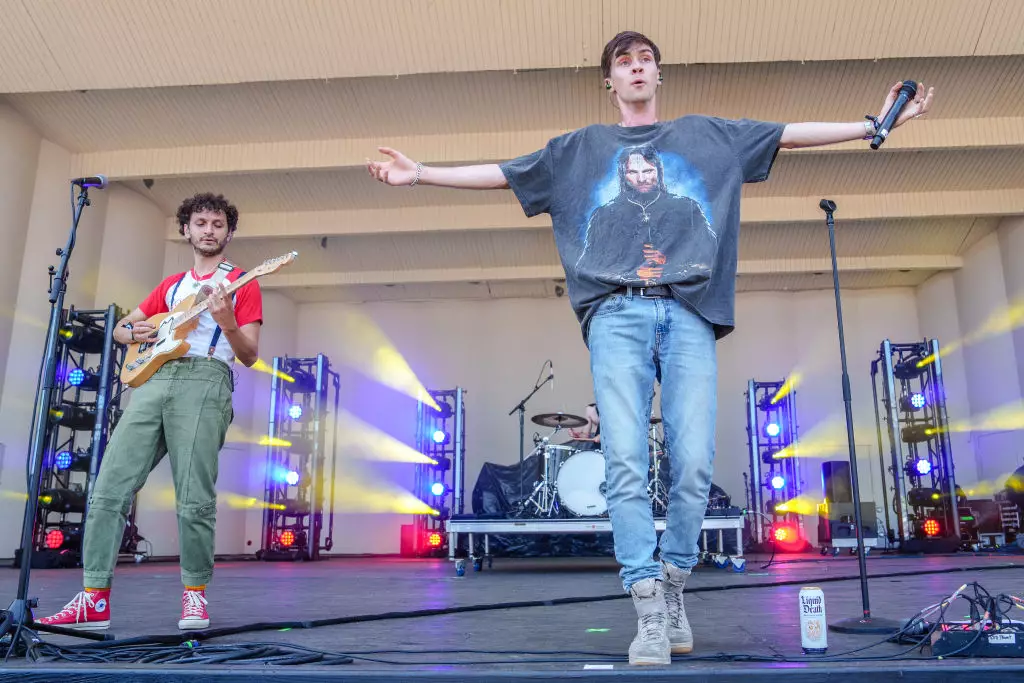In the fast-paced world of technology and the ever-evolving landscape of music, few individuals manage to straddle both realms with the same ease as Nick Frosst. Co-founder of the groundbreaking AI startup Cohere, which boasts a valuation of $5.5 billion, Frosst is equally passionate about his more artistic pursuits, particularly as the frontman of the indie rock band Good Kid. This duality in his professional identity not only reflects his diverse interests but also illustrates how the disciplines of technology and music can intertwine to foster creativity and innovation.
Frosst’s journey as a musician began in his youth, a passion that has grown alongside his burgeoning tech career. Initially, music was just a hobby for him and his bandmates—like many aspiring artists hoping to jam in the evenings after a long day of studying computer science at the University of Toronto. However, what began as a small-scale endeavor quickly escalated into something much more significant. Their debut single, “Nomu,” released in late 2015, gained unexpected acclaim and set the stage for a budding career in the music industry.
While Good Kid could have remained a mere pastime, the overwhelming response to their early work galvanized the group into producing a more ambitious catalog of music. Their sound resonates with elements reminiscent of well-known bands like Bloc Party and Two Door Cinema Club, yet remains distinctly their own. With Frosst’s distinctive vocal style, Good Kid has achieved significant milestones, including nominations for prestigious awards like the Juno Awards and performances at prominent festivals like Lollapalooza.
Frosst fondly recounts the early days of Good Kid, noting that expectations were modest at first. “We just wanted to create something that we liked,” he shared, reflecting a sincere approach to their craft that contrasts sharply with the often commercial motivations seen in the music industry. This authenticity likely contributed to their impressive Spotify following, which currently averages 2.3 million monthly listeners—a testament to the band’s ability to connect with a wide audience.
Finding harmony between his roles at Cohere and as a musician is no small feat. However, Frosst navigates this balancing act with apparent ease, dedicating specific times for both pursuits. The band convenes twice weekly for practice sessions, allowing them to keep their musical skills sharp even as they devote their professional lives to tech innovation. This disciplined scheduling not only nurtures their musical aspirations but also keeps their professional deadlines in check.
When on tour, Good Kid members adapt their routines to maintain productivity. They often work remotely between performances, utilizing their programming skills to stay engaged with their careers during the day before taking the stage at night. Frosst has noted that this structure surprisingly aids his focus; the more restricted schedule while touring allows him to prioritize essential tasks without the usual barrage of meetings.
Frosst’s insights into the synergy between music and technology are particularly captivating. He believes that engaging in music fuels his creativity and ultimately enhances his work at Cohere. Ironically, even when immersed in the creative aspects of making music, the discussions and themes surrounding AI often permeate their lyrics. The band’s first single contained lines that hinted at the foundational technology Frosst would later delve into with Cohere.
The multifaceted focus of Frosst serves as an example that creativity is not constricted to a single industry but can flourish across varied fields. His unique position allows him to explore different facets of knowledge, and this blending of experiences seems to elevate both his creative and technical endeavors.
The most enlightening aspect of Frosst’s story might be his perspective on success. Unlike many artists who feel pressured to achieve commercial success, he embraces the freedom to create for the sheer joy and creativity it brings. Frosst emphasizes his gratitude for being able to engage in music not primarily as a career aspiration but as an outlet for self-expression. This liberating approach enables him to channel authentic creativity without the weight of expectation, a rare luxury in the competitive music industry.
In a world where career paths are often linear, Nick Frosst shows us that pursuing passion in multiple arenas can lead to unique and fulfilling opportunities. The interplay between his work in AI and music reveals that innovation and creativity are not bound by traditional boundaries but can coexist to provide unprecedented avenues for expression and growth.

